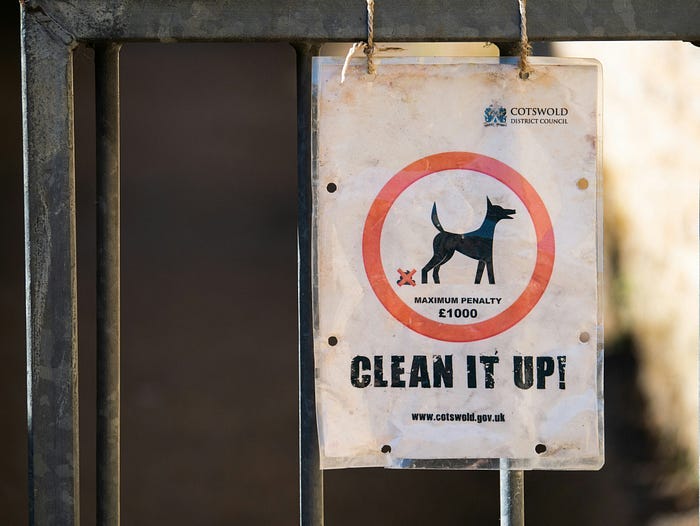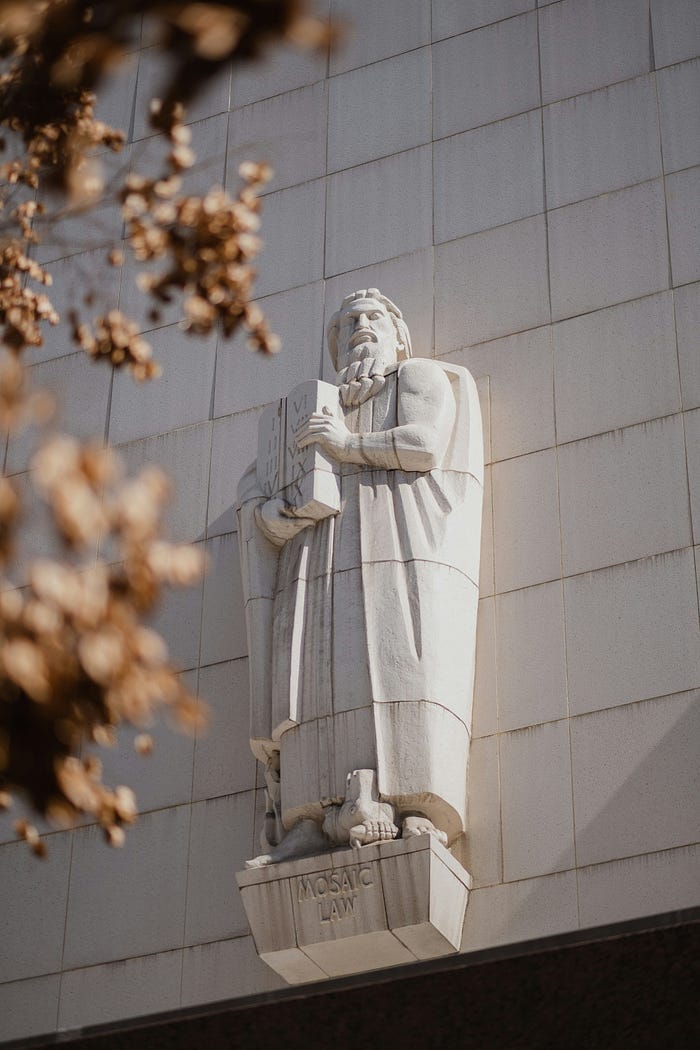
This is a guest post from the JPF family by Ruchama Feuerman, author of "In The Courtyard of the Kabbalist"
All stories written by Reuben Salsa (every Thursday, 9 am Auckland time) are for paid subscribers only. Guest posts will remain free and posted every Sunday (9 am Auckland time).
This week, blessings to our newest members of the JPF PAID SUBSCRIBERS Club. Congratulations to
, , andSupport my coffee addiction and illusional writing career! Pay for a subscription today! Guaranteed no guarantees!
What, if anything, were the Jewish People chosen for?
My father worked in a blueprinting shop. Every time a Jewish holiday came around, like Rosh Hoshana, my father would take off of work with no pay to observe the holiday. The men used to rib him. No fair. Why do you get a day off, and not me? Is it cos you’re the Chosen People?
My father who had a sense of humor would say, “I’m gonna spend five to six hours praying in a synagogue. Then I’ll come home and have a big meal, and go back to the synagogue for another half hour, and then come evening, for another hour. Two days of that. No TV, no baseball game, no driving anywhere. Want to switch places?”
“Nah,” they’d say. “Never mind.”
As someone who came from humble beginnings, as someone who had felt unchosen and rejected by his father because of a physical deformity, he rather liked the Chosen Notion, this special status of “treasured nation” and “kingdom of priests” conferred on the tribe of Jews. And my father was an actual Kohein, too — a priest, which to his thinking made him “the chosen of chosen.” But then his rabbi said, “Sorry to disappoint you, Bert, but Kohein” — priest — “means ‘to serve.’ This role comes with obligations and responsibilities, no perks, no special privileges.” No priest was allowed to own land in Israel. Only the other tribes.
Chosen to serve. As a kid, I understood what that meant. I felt chosen all right. Chosen to clean up our dog Radar’s poop, and when my oldest sister went off to college and I inherited her old chores, chose to make supper every night and clean up afterward, too. I was chosen because I was the responsible one of my sibs, and also because I was a wuss and didn’t put up a fight. Everyone in my family had spunk. Not me. I have to admit, I did love how my father would compliment me and say I was the gentlest of the children, the child most like him.

It was Shavuot night, the holiday that celebrates the giving of the Torah back in the year 1313 BCE. We were sitting around the family table.
“Did you know,” Dad said with a devilish gleam, “we’re NOT the Chosen Nation?” He glanced around the table and his eyes settled on my oldest sister.
I loved listening to my father’s musings, stories from his childhood, and when he shared his latest tidbits from the rabbi. Like Dad, I had caught the religion bug. But why was it, whenever he had an audience, he tended to look solely at my oldest sister? His eyes merely skimmed over me and my two younger sibs. I probably didn’t realize at the time how odd that was or how much it wounded me.
“What are you talking about, Bert?” my mother said. She didn’t go in for theological discussions but did like how they helped contain the squabbling at our table.
“God first tried to get other nations interested in the Torah. He went to the Ishmaelites, the Edomites, and the Canaanites. You want it? According to the Midrash, they all said no, too many rules, too restrictive. But then the Israelites said yes.”
“So we weren’t God’s first choice?” my sister piped up. “God chose us because everyone else said no?”
Dad shrugged. “So what? Isn’t it better to be the chooser than to be chosen? At least that’s what the rabbi said.” Then his eyes went conspiratorially from kid to kid, like he was letting us in on a dirty secret, and once again his gaze landed on my sister where it stayed. “You know why I think the other nations said no?” He let a dramatic pause fall on our table. “Because it was too dangerous!”
My sister squirmed under Dad’s laser-like focus. Did he choose her to look at because she was the smartest? The oldest? The most intense? Why didn’t he look at me? Didn’t he say I was just like him?
I don’t recall the exact words my father used, but the upshot was, that the Torah, with its laws forbidding polytheism, human sacrifice, unjust courts, and ritual prostitution, not to mention expecting slave owners to free their slaves after six years, couldn’t have been popular with the Mesopotamian population at that time. It would’ve been seen as subverting the natural order. The Israelites’ acceptance of the Torah was setting them up to be seriously at odds with the prevailing culture and despised for eternity. No wonder the Torah wasn’t an easy sell to any nation.

Years later, I would discover that the word Sinai — the mountain where the Torah was given — is etymologically close to the word Sina, which means hatred.
“Why was the Torah given on a mountain called Sinai?” asks the Talmud. Because from there hatred toward the Hebrews entered the world.”
Essentially God was calling out, Who wants to accept all My 613 commandments? Who wants to wander for forty years in a desert, live in Israel for around 830 years, and then get kicked out and suffer at the hands of every host country where you’ll try to settle until the end of time? But not to worry. Eventually, I’ll return you to your land.
Unsurprisingly, no nation stepped up. You would have had to be crazy.
But why was Dad looking so pleased? “Dangerous,” my father repeated. His eyes gleamed with a roguish satisfaction.
In retrospect I understood. My father had tried again and again to enlist in the army during the Korean War but because of his many physical ailments and medical issues had never been accepted. Some part of him had always yearned to do something courageous, noble, and important.
In his mind, he must’ve recast himself and the Jewish nation as the Navy Seals going on a highly fraught and risky operation. The mission wasn’t to convert anyone to the Torah but to introduce the idea of one God and human accountability to a pagan world. Dangerous indeed, like my father said.
And I understood another thing, too. God’s dangling the idea of the Israelites being His treasured nation — it wasn’t a bribe or empty flattery or an implied threat or set up to make Israel feel superior. It was an assurance of protection and concern. As if to say: True, by accepting the Torah you will be the most despised and endangered nation on earth. Still. Know that I’m invested in you. And don’t fear — I’ll preserve you as a people, even as other civilizations around you appear and disappear. I’ll give you a long history, pull you through it, and have your back, even as I’ll try to not be too obvious about it.”
It’s undeniable that the Israelites to a large degree succeeded in spreading monotheism, abolishing idolatry and child sacrifice, providing public school education from the year 64 CE, introducing animal rights, crop rotation, just court systems, and providing a springboard for Christianity and Islam among other things. By and large, the above didn’t exist before the Torah was given. And it’s undeniable that by doing the above — in particular providing a foundation for two major religions — the nation of Israel became an eternal target.
Okay. So the Jews, by their acceptance of the Torah, were slated from the get-go to be sitting ducks, a bull’s eye of anyone’s hatred. (Nietzche says something similar, by the way. Give credit where it’s due.)
But why did God have to make it worse by employing that divisive Chosen People phrase?
It seems to have fostered the worst kind of sibling rivalry, an endless vying for attention and validation from the ultimate father. Maybe that’s why the imams and the priests were obsessed with converting Jews. As if to say, No, you’re not the Chosen People. We are. Admit it, damn you! Convert! Be just like us. And if you won’t, there’ll be hell to pay. And, as we know, there was.
So what was God thinking when He threw those verses into the Bible?
There’s a prayer in the Passover Hagaddah that may answer my question. ”It is this promise that has sustained our ancestors and us…in each and every generation they rise up against us to destroy us. And The Holy One, blessed be He, rescues us from their hands.“
The usual understanding of the above is that God promises to save Israel from its many enemies. But maybe God is promising us something else — You will be attacked. I guarantee it. The hatred may ebb and flow but never disappear. And — who knows? — maybe the guarantee of hatred is part of the special protection God promises.
After all, persecution had its advantages — that is when Jews weren’t being decimated. We were shoved into ghettos and forced to be together, keep our traditions intact, which stopped us from assimilating. We had to develop extraordinary skills of survival to make it through the week, skills that endowed Jews with the power of conquering pages, not people. Mastery of text and character was true power, not the sword. Persecution may well have preserved the Jewish Nation.
One final memory. I was in my late twenties. All my sibs had assembled at our childhood home. It had been decades since we’d all been together in one room, given that we’d been living on different continents. Dad who was divorced by then was moving to Israel to fulfill a lifelong dream and live close to my younger sister.
Dad began sharing a thought, an idea, probably something from the Torah which he still studied and cherished. Me and my two sisters stood, grouped around him, listening. And just like the old days of my childhood, Dad’s eyes remained riveted on my big sister’s.
A terrible feeling came over me like I was disappearing, getting sucked into the wallpaper. My mind knew this was crazy. I had accomplished a lot since childhood. I had become a Torah teacher to college-age women, I was teaching writing to adults as well and had started to write the draft of what would be my first published novel by a major publishing house. I’m a person, a grown-up! And yet I could feel myself disintegrating in my own skin.
But. This time I did something. My finger as if on its own accord reached out and touched my father’s chin and gently guided it so that his head faced me, and his eyes finally looked into mine.
Dad shot me a look of pure shock. For a long five seconds, he just stared at me, outrage taking over his face. Then he jerked his chin away and more firmly rested his gaze on my big sister.
Oh.
You see, my father thought I was like him, the weaker more gentle child. The chosen unchosen. He was programmed from years of the pain of insignificance and his father’s rejection to turn his head away from me who he identified with. He was turning his head away from himself.
My thoughts about chosenness continue to evolve. I’ve long assumed that all nations were chosen. For what, I don’t know, but presumably, God made the other nations feel just as treasured and special as the Jews. Doesn’t a good parent have that way of making each child feel unique and chosen?
(The big caveat of course is, that people don’t use chosenness to colonize other people’s lands, bodies, and souls, by forcing them to convert.)
Lord Rabbi Sacks writes, “Judaism is structurally unique — the only world religion ever to believe in a universal God, the God of all peoples, times and places, and at the same time to believe in a particular way of life that not all people have to follow, because just as there is more than one way to be a leader, so there is more than one way to find God.”
Interestingly, the characters I tend to write about are the kind your eyes would glide over, the meter maid, the cafeteria workers, the girl who holds the suction while your teeth get cleaned, and the invisible people. Maybe I’m writing about my father, and myself.
It’s painful to be known. It’s painful to not be known. Painful to be chosen, painful to not be. My sister would later say how much she hated the way my father fixed his eyes on her. (There’s a presumption about chosenness that one wants to be chosen.) The funny thing is, sometimes when I pray or study Torah, or try to write, it’s as if I’m putting my finger on my father’s chin, holding it in place, his eyes resting on me, this time not moving away.
For more articles by Jewish authors, subscribe to the JPF on Medium (click on the image below).
Want even more Jewish bang for your buck? The JPF recommends subscribing to the following Substacks:
Maccabee Nation by Jason Crystal
Dear Chevra by Gail Zahtz
- sometimes serious, sometimes funny but always informative.MUST FOLLOWS on Notes and subscribe to their Substacks:
and
andHonestly, there are so many all-important voices in the ever-rising tide of antisemitism, that one would need a Substack post to list them all!
Zionists are turning the tide! STAND UP TO ANTISEMITISM on this non-Nazi platform ;)






I get a little upset at the use of the term "chosen people" in lieu of the original Hebrew "s'gulah mikol ha'amim," (Exodus 19:5). S'gulah means treasured, not chosen. And take the phrase in context. The offer of being treasured among the peoples of the world is conditional on listening to Hashem's word and keeping his mitzvot. Perpetuating this mistranslation is unfortunate.
while Abraham was still a polytheist under his father Terah, God called Abraham to simply go. Where he did not know, nor that millennia later his name would still be a household name. I don't see anywhere in the Torah where God gives another nation, the opportunity to be chosen before the Jews. God even goes out of his way in the Tanach to say that the Jews were chosen in spite of themselves: the smallest of the peoples, the most stubborn, etc. The logic given is approximately: I have loved you because I have loved you. Very much like "I am that I am." it is a statement that simply is it does not need an explanation.